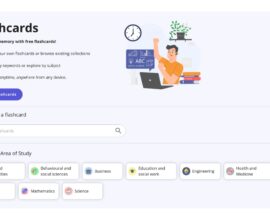How To Learn a New Language
Most of us want to learn foreign languages fast. However, the orderly progression of mastering a language—from learning grammar, to listening to audio—that we know from school and language learning programs is anything but fast.
Learning a new language doesn’t have to be slow and boring! We’ve put together the easiest language learning strategies and tips to help you learn effectively and speak fluently in no time.
What Are the Benefits of Learning a New Language?
Below are some of the ways learning another language can enrich your life:
- Communicating and connecting with a wider range of people both at a personal level and professionally
- Reducing decision fatigue
- Getting a competitive advantage in career opportunities
- Enhancing cognitive function which improves your memory retention, creativity, problem-solving skills, concentration, and listening skills
- Delaying and reducing the risk of dementia and Alzheimer’s disease
- Improving your ability to learn other languages
1. Have a Purpose for Learning the Language
Why do you want to learn a foreign language? Do you want to study or work in a different country? Are you learning a new language to make new friends while on vacation?
If you have clear and powerful reasons to learn a foreign language, you’ll find a way to push through no matter how steep the trail gets. Strong personal motivation for learning a new language gives you the psychological fuel to keep going, even if you’re tired, and helps you to create the time for study no matter how busy your schedule gets.
Without clarity on your motivations, you’ll quickly burn out and quit before mastering the language—so make sure you understand your ‘why’ early on!
2. Find the 100 Most Common Words First
When you’re learning a new language, it’s tempting to expand your vocabulary quickly. While learning more words is beneficial, you don’t have to know all of the words in a language to be proficient.
The most common 100 words make up 50% of our daily communication in any language, and the top 1,000 words account for 80% of everyday conversations.
In other words, looking at the most frequently appearing words before moving on to the infrequent ones will be a better use of your time. Find the 100 words which frequently appear in your target language, understand their context, and create sentences with them. You can then build your way up to the 1,000 most frequently used words.
3. Set Specific and Realistic Goals
Learning foreign languages can feel overwhelming at first. The best way to avoid feeling overwhelmed and stay motivated is to set simple, attainable, and measurable learning goals.
Most language learners start with vague goals like “I want to be fluent in German within four months.” But what does fluent mean? Do you want to hold a 15-minute casual conversation or discuss more complex issues?
Instead, set realistic and clearly defined language learning goals. You should also set daily goals to motivate yourself regularly. When you’re starting out, it could be as simple as learning the alphabet, understanding how the language works, or learning how to introduce yourself and greet new people.
It’s also important to focus on what you want to learn, rather than how much time you’ll invest in learning. For instance, “Today, I’ll learn 10 French vocabulary words related to business.”
4. Schedule Consistent Daily Practice
Consistency is what separates successful language learners from the rest. You can build consistency in your language learning journey by setting aside some time every day for study. It’s even easier to build a language learning habit if you schedule your study time around the same time every day.
Daily learning also keeps the language fresh in your mind. If you’re skipping days, you may forget what you’ve learned and spend more time reviewing past materials before moving on to new stuff.
Check your schedule and create a study plan that you’ll stick to even when you are tired or don’t feel like learning.
5. Connect With Friends and Language Buddies
Interactions and conversations are essential when learning a foreign language. You must go beyond making efforts to learn vocabulary and grammatical rules if you want to hold conversations in your second language.
One of the best ways to begin your speaking practice is to engage with your friends who speak your target language. The best part about chatting with friends is that you can speak freely without being overly conscious or feeling like you’re on the spot!
You can also find native speakers of your target language near you by attending events or looking for online language buddies. Listening to native speakers will help you learn how to pronounce and use words correctly. This is important because it’s nearly impossible to learn pronunciation from a book.
Conquer your fears and start surrounding yourself with people who speak your target language as soon as possible!
6. Track Your Progress
Measuring your progress is crucial in language learning. You need to know if all the studying and speaking practice is paying off. Your progress can also motivate you by reminding you how far you’ve come.
Some of the ways you can track and measure your progress include:
- Maintaining a list of the new words that you’ve learned
- Recording yourself speaking your target language once a month
- Keeping a journal in your foreign language
- Rewatching a movie or TV show that you had trouble following initially
- Test yourself periodically using different online resources like practice tests
- Use electronic flashcards when learning new words
- Check the duration of your conversations with a native speaker or your language partner
7. Learn What You Need
If you’re learning a language for a specific purpose, like attending a business conference or living abroad for a period of time, you should focus on building language skills that are more specific to your needs.
You don’t have to follow a textbook from cover to cover. It’s okay to skip learning irrelevant vocabulary if what you need most is linking words (for example, so, then, and but) that you’ll need to use to construct sentences in your conversations.
As you hit your goals, you’ll also get better at assessing your language needs and determining what you should learn next.
8. Make Mistakes and Learn From Them
One of the greatest enemies of learning to speak another language is the fear of making mistakes!
You’ll master a new language quickly if you’re willing to make mistakes and learn from them. There may be times when you won’t know the right words to use in a conversation, or you might not fully understand what another person said. It’s all normal, and you should embrace making mistakes as a part of the language-learning process.
Most conversation partners, especially native speakers, will be happy to correct you and help you out!
9. Watch Movies and TV Shows
Are you wondering how you can cozy up and watch a movie or a TV show when you only know a handful of words? You don’t have to understand everything you hear! Focus on becoming acquainted with the language’s sounds and culture.
Some of the benefits of watching movies in a new language include:
- Familiarising yourself with the cadence, pace, and pronunciation of the language
- Getting a sense of the culture associated with the language
- Identifying common words and their context for everyday use
10. Find Ways To Immerse Yourself in the New Language
Using a language often and consistently is the surefire way to reach fluency. That’s why you should use different strategies to immerse yourself in the language.
Some of the ways you can immerse yourself in the new language and get loads of language practice include:
- Changing the language on your phone. It will leave you disoriented for a few days but leaving yourself with no option is one of the best ways to learn
- Go abroad for studies, work, or travel. You’ll be surrounded by people who speak your target language and most likely don’t know your native language. It can be uncomfortable but will force you to learn quickly
- Meet with a language buddy once or twice a week for at least one hour
- Look for organisations or groups that serve people who are native speakers of your target language and ask for volunteers opportunities (VolunteerMatch is a great example)
Summary
While there are universal language learning strategies, some tactics will work better for you than others. Be patient as you explore the infinite learning styles available and select what works for you.
You can also help streamline your language learning journey by utilising our online study app, Zookal Study, to access learning tools, flashcards, videos and other crucial study resources.






